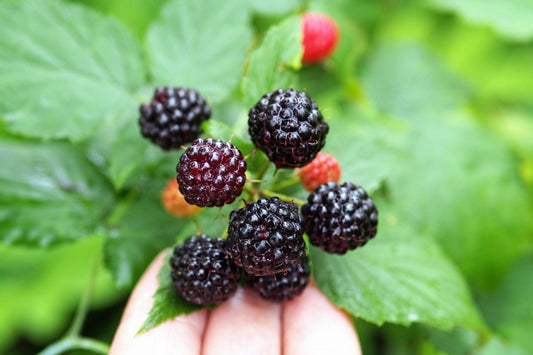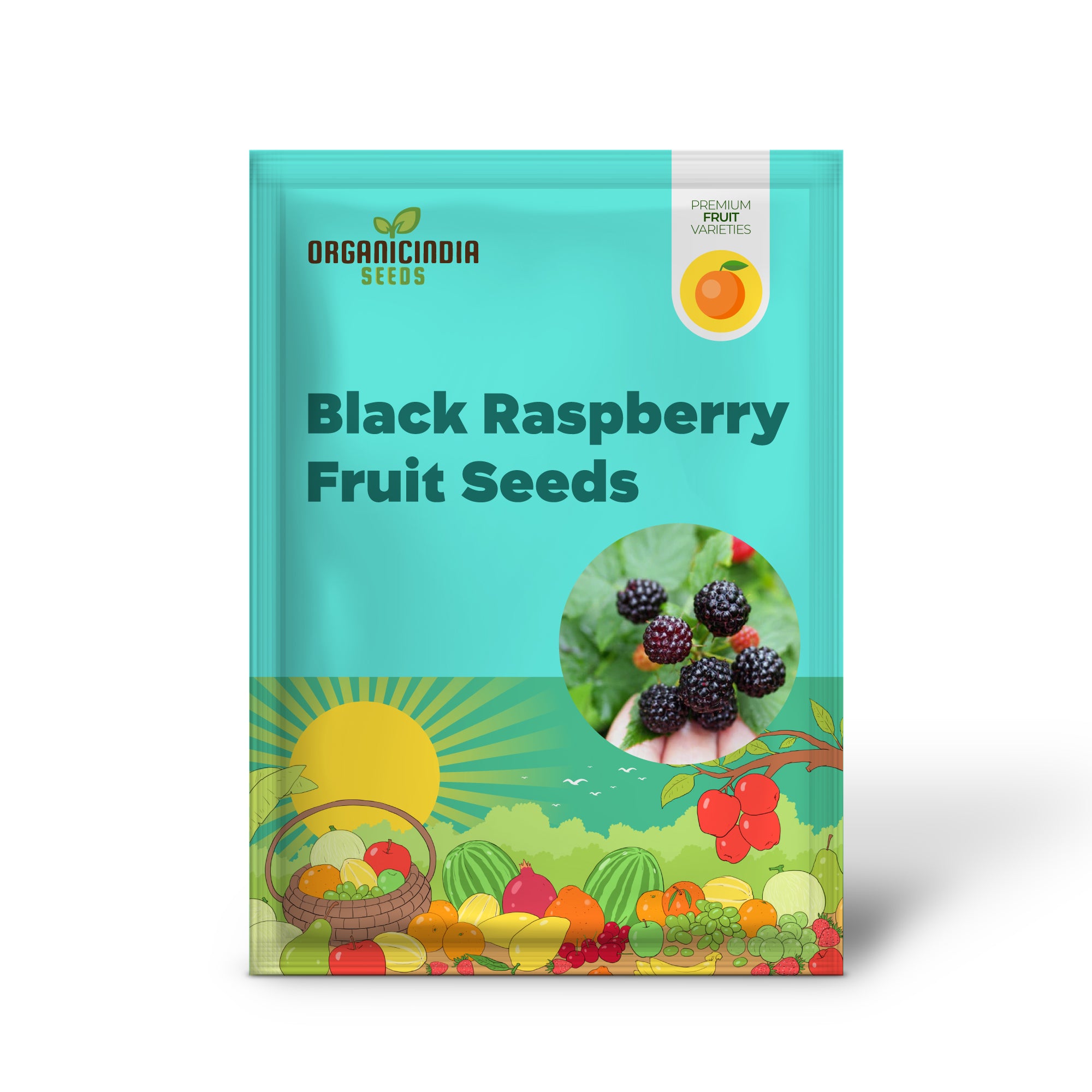



Free Shipping
Safe & Secure Payments
Black Raspberry (Rubus leucodermis), also known as "White-Bark Raspberry" or "Blue Raspberry," is a unique variety of raspberry known for its sweet, dark purple to black fruit. This hardy, perennial fruiting shrub or vine thrives in a variety of growing conditions and produces high-quality, flavorful berries perfect for fresh eating, desserts, jams, jellies, and sauces. With its attractive, arching growth habit and lovely white flowers in the spring, Black Raspberry plants add both beauty and productivity to any garden. Whether you're a novice gardener or an experienced grower, these bushes are easy to grow, highly productive, and provide a delicious harvest each year.
Key Features:
Growing Information:
Light:
Black Raspberry plants thrive in full sun but can tolerate partial shade. For the best fruit production, plant them in a spot that receives at least 6-8 hours of direct sunlight per day.
Soil:
Black Raspberries prefer well-drained, slightly acidic soil with a pH between 5.5 and 6.5. They grow best in fertile soil rich in organic matter. If your soil is heavy or clay-based, improve drainage by incorporating compost or well-rotted manure.
Planting Tips:
Start Black Raspberry seeds indoors by lightly pressing them into a seed-starting mix. Cover them with a thin layer of soil, as they require light to germinate. Keep the soil consistently moist and maintain a temperature of 65-75°F (18-24°C) for optimal germination, which may take 2-4 weeks. Once the seedlings are large enough to handle and all danger of frost has passed, transplant them outdoors. Space the plants about 2-3 feet apart to allow them to spread as they grow. Black Raspberries can also be grown as a bush or vine, depending on your preferred garden style.
Watering:
Black Raspberry plants need regular watering, especially during dry spells, to ensure healthy growth and fruit production. Water deeply, ensuring the roots receive moisture, but avoid waterlogging. Mulch around the base of the plants to help retain moisture, suppress weeds, and regulate soil temperature.
Benefits:
Growing Zones:
Black Raspberries are hardy in USDA Zones 4-8, making them suitable for a wide range of climates across North America. They are well-suited to cooler climates with mild winters, but with proper care, they can grow in warmer regions as well.
How to Use in the Garden:
Conclusion:
Black Raspberry (Rubus leucodermis) is a fantastic, easy-to-grow fruit plant that offers both beauty and productivity. With its sweet, nutritious berries, attractive spring flowers, and vigorous growth habit, it is a perfect addition to any edible or wildlife garden. Whether you’re looking to grow a healthy food source, create a pollinator-friendly space, or add ornamental value to your garden, Black Raspberries provide a versatile and rewarding option. Their low-maintenance care and delicious fruit make them a great choice for gardeners of all experience levels.
Choose options

